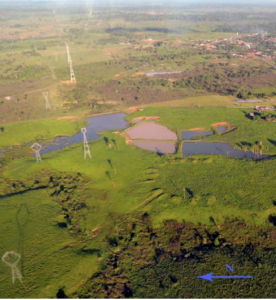 PI: Professor Thomas Meagher
PI: Professor Thomas Meagher
Amazonia is a critically important biome in terms of potential impacts of development (e.g. deforestation), sustainability of indigenous peoples and their livelihoods, and sustainability of biodiversity and ecosystem services with global impact. Modern land-uses such as urbanization, intensive agriculture or extensive conversion to pasture are showing devastating effects on Amazonian biodiversity. While there is keen awareness of present anthropogenic effects, Amazonia is also a laboratory for investigation of longer-term human impacts. There is a long history of human-environment interactions in Amazonia, but there is a need to understand past human impacts on the environment to enhance strategic planning for future sustainable development that maximises human benefits from ecosystem goods and services, while minimising negative environmental impacts such as biodiversity loss. This School of Biology work is developing an integrated research group that addresses sustainability in Amazonia.
